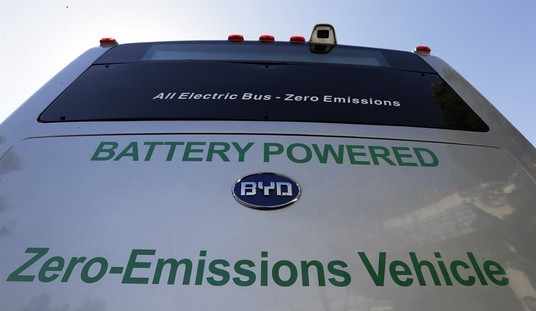Earlier today, I wrote in my column for The Week that the Occupy Movement had aimed at the wrong entity in its protests over economic conditions, as yesterday’s poll from The Hill showed that a majority of likely voters blamed Washington more than Wall Street for the current state of the economy. USA Today and Gallup released their own joint poll of the general population — where the trend is even stronger:
Most Americans blame Wall Street for the nation’s economic predicament — but they blame Washington more. …
• When asked whom they blame more for the poor economy, 64% of Americans name the federal government and 30% say big financial institutions.
• Only 54% say the economic system is personally fair to them; 44% say it is not.
Gallup’s analysis shows that the Occupy Movement hasn’t exactly made a coherent case, either:
But the American public does not seem to be very familiar with the movement or its goals. Part of that may stem from the below-average level of attention Americans are paying to the news story. Fifty-six percent say they are following the story closely, including 18% who say very closely. The averages for more than 200 news events Gallup has tracked since the 1990s are 61% closely and 22% very closely. …
Republicans (57%), Democrats (57%), and independents (55%) are about equally likely to say they are following news about Occupy Wall Street closely.
Those who follow the story “very closely” are more likely to be supporters than opponents (52/19), but that’s a great example of selection bias. People inclined to dismiss the whole protest movement as nothing more than the same kind of nonsense we’ve seen since Seattle’s violent 1999 WTO protests — backed by some of the same people — are not going to be inclined to follow this story very closely at all. In fact, in the general population, only 26% claim to support the Occupiers, while 19% oppose, and a majority of 52% don’t care one way or the other.
How does this compare to the Tea Party? The poll shows that the public support numbers look roughly the same:
Support for the Tea Party movement and its conservative agenda is roughly the same as Occupy Wall Street’s, the poll found. About a fifth of Americans (22%) describe themselves as Tea Party supporters and 27% as opponents. Almost half (47%) say they’re neither.
And what about the tax-the-rich philosophy of the Occupiers? Apparently, it’s not going to get a lot of traction among Americans, as only 18% believe that the rich should pay more than 30% of their income:
Asked what the wealthiest 1% of Americans — the ones excoriated by Occupy Wall Street —should pay in taxes as a percentage of their income, more than a quarter of people — 28% — have no opinion. Another 21% say the richest should pay 10% or less, and only 18% say they should pay more than 30%.
Given that the current rates at the top are already well over 30%, that doesn’t exactly sound like a mandate for a tax hike — at least not an informed mandate. The effective tax rate for people above $100,000 is close to 20%, according to The Economist, and when adding FICA, it goes to about 25%. In 2009, Forbes reported the effective rate to be closer to 18% for the top 400 earners in the US in 2006, but most of the very wealthy get their cash streams in the form of capital gains, not salaries. Income gets taxed at 35%, so the only reform that would possibly close this gap would be to tax capital gains at a higher rate — which would disincentivize investment — or eliminate deductions and go to a flat tax.
At any rate, the Occupiers aren’t exactly capturing the imagination of the American electorate, and certainly don’t represent mainstream views on economic policy and especially politics. Maybe that’s why some Occupiers are having nightmares … about saying, “I love you”?








Join the conversation as a VIP Member